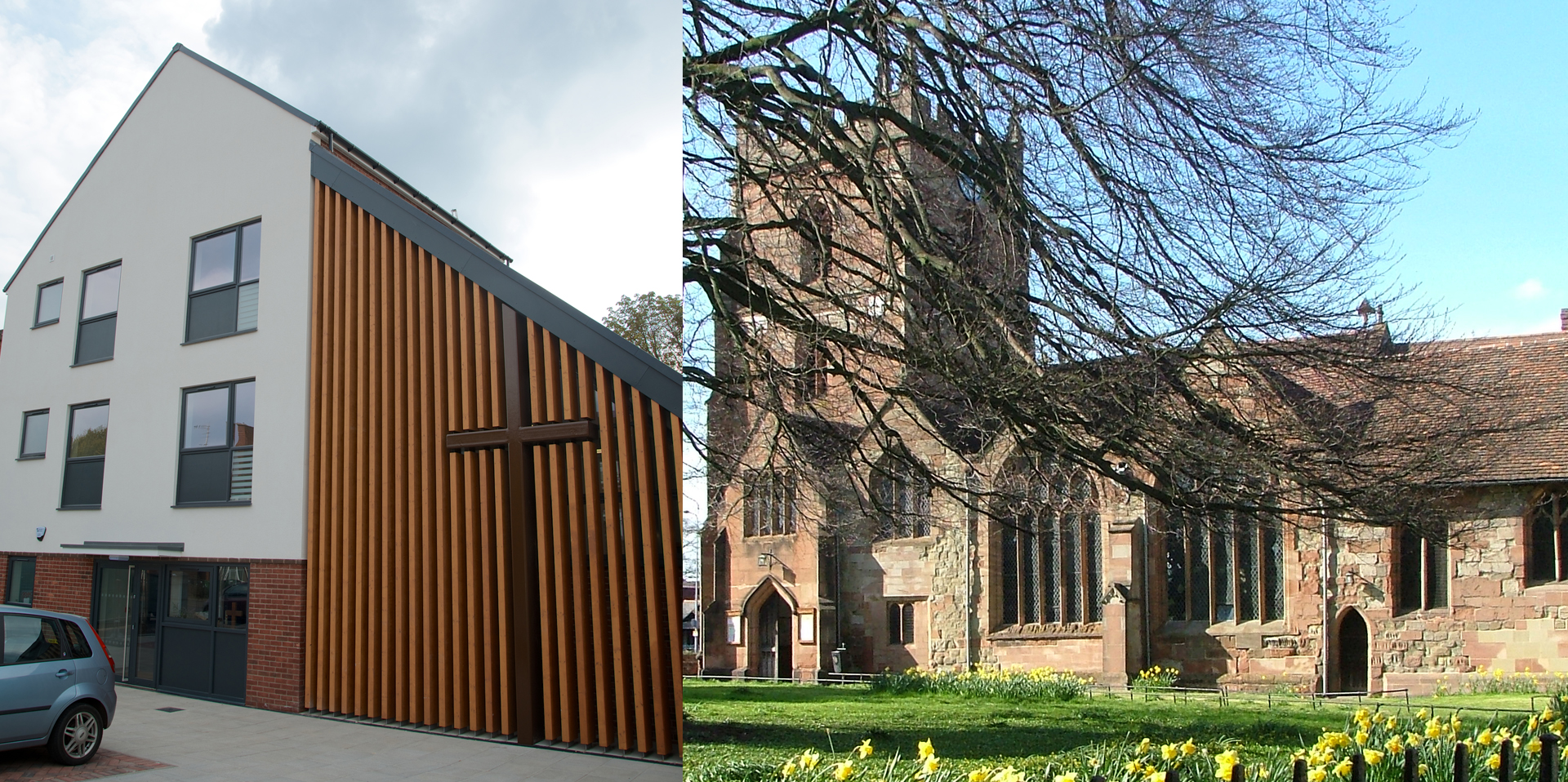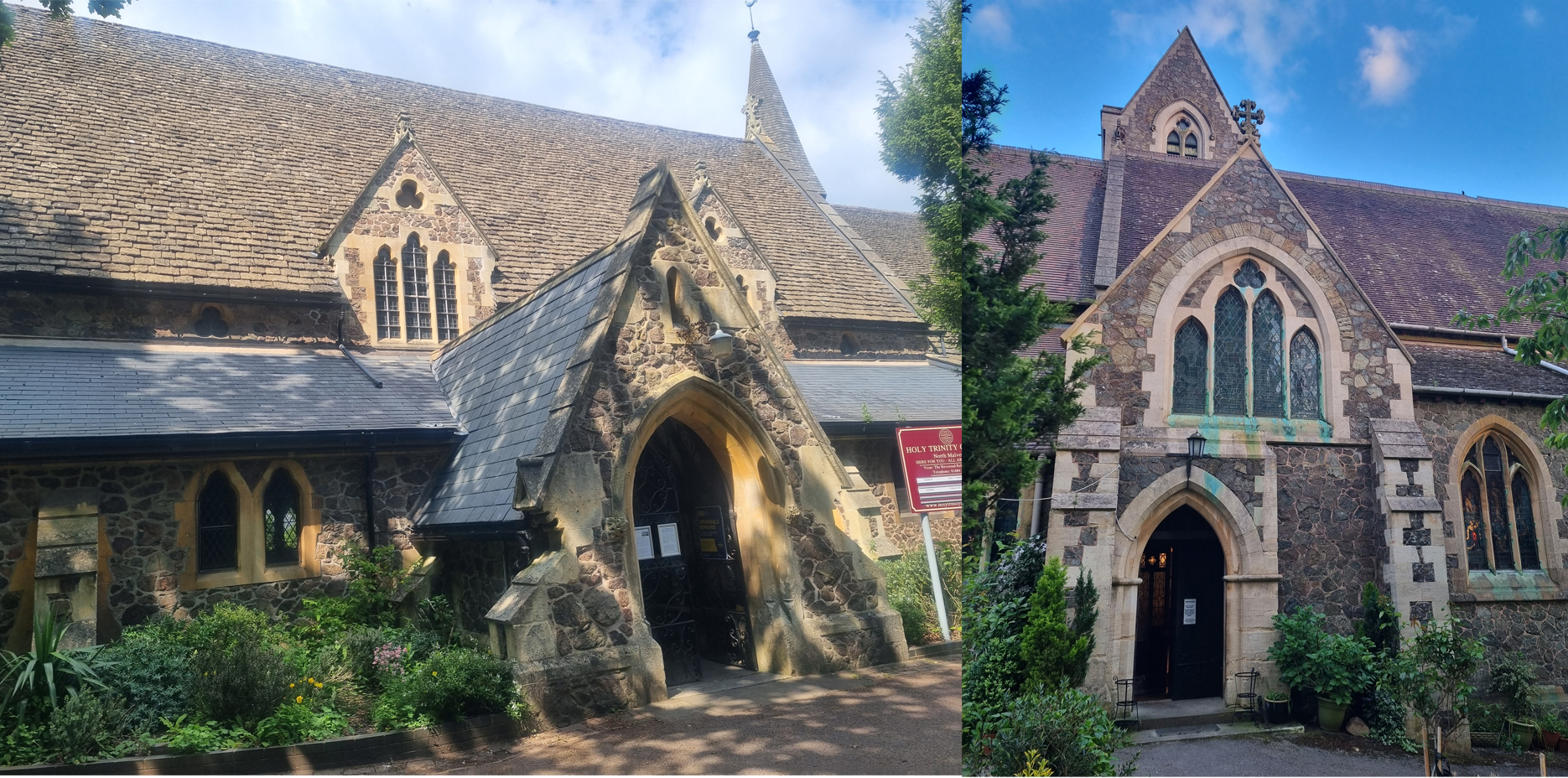As part of the Church of England’s drive towards greater simplification, it is now possible for multi-parish benefices to form a Joint Council. This Council becomes the legal governing body for all those churches who are a part of it, with the individual PCCs becoming dormant.
Dean of Smaller Churches, Alison Maddocks, said: “Many of our churches are struggling to recruit the officers they need to run a PCC effectively. As a diocese, we are committed to getting back to one legal body per incumbent, which stops some work being duplicated in all the churches in a benefice and helps to lighten the load for everyone.”
Worcester City West
 Phil Bradford is Rector in the Worcester City West team. He is responsible for three parishes within the benefice and has worked with St John and St Michael to create a Joint Council rather than maintaining their individual PCCs.
Phil Bradford is Rector in the Worcester City West team. He is responsible for three parishes within the benefice and has worked with St John and St Michael to create a Joint Council rather than maintaining their individual PCCs.
He said: “The proposal to establish a Joint Council was initially raised at the individual PCCs and then when the scheme was developed it went to all APCMs to be voted on. The churches of St John and St Michael were both overwhelmingly in favour, but the third church in the benefice decided not to join. Once agreed, it halved the number of meetings that I needed to attend and really helped St Michael because they were struggling to find the people to fulfil all the legal roles. We now share the Treasurer and Safeguarding Officer across both churches, and it has enabled the two churches to work together more effectively and look at the broader area much more missionally.”
The membership of the Joint Council is proportionate to the numbers on each electoral role and also include the churchwardens, deanery synod reps and clergy. In the West Worcester City Team, the Joint Council holds a joint bank account which can be split into the individual churches and is the employer for the two paid roles in the benefice.
Phil continued: “Setting up the Joint Council has been extremely positive for these churches, and I am very glad we did it. It’s important that the context is right, but if churches are looking at mission planning, it is definitely worth considering. I’ve definitely seen a reduction in the things which need doing which can take up time and setting up the Joint Council can take some of the pressure off to enable church leaders to concentrate on the things that they want to be doing.”
Holy Trinity & St James in Malvern
 Holy Trinity and St James in Malvern started talking about the possibility of setting up a Joint Council in the PCC in Autumn 2022. The two churches have quite different numbers attending each week and St James was struggling to find people to take on the different roles.
Holy Trinity and St James in Malvern started talking about the possibility of setting up a Joint Council in the PCC in Autumn 2022. The two churches have quite different numbers attending each week and St James was struggling to find people to take on the different roles.
Vicar Becky Elliot said: “Not everyone was in unanimous agreement when we started exploring the possibility, as Holy Trinity was worried they’d have responsibility for St James, but Alison came and spoke to the PCC and we held a Q&A session with the wider congregation to address the concerns. When the final proposal went to an extraordinary meeting in each church, it was unanimously agreed at St James and passed with a majority at Holy Trinity.”
Once the scheme for a Joint Council is approved by a two-thirds majority in each parish, it then goes to Bishop’s Council for approval. The Churches will share in a single set of accounts although they can still keep separate bank accounts if they prefer and funds belonging to each church can be held as restricted or designated funds for that church.
Alison said: “It doesn’t mean that if the roof of one church falls in, the other church is obliged to pay for it. Where funds are restricted, they remain restricted. However, it would mean that the Joint Council work together to decide how to move forward with repairs etc. supporting each other.”
Becky continued: “There has been quite a bit of work for our Treasurer this year, sorting out our Charity number, letting the Charity Commission know and arranging the joint bank account. However, now most things are in place, it is much more straightforward and feedback at this year’s APCM was that it was working really well with most people in the congregation not noticing any difference.”
Becky now attends six joint council meetings a year rather than 12 PCCs, plus there is one standing committee. The main policies are written once for both churches and then each church then has a number of different teams, such as fundraising and fabric which don’t need to formally report and don’t necessarily need the involvement of the incumbent.
“The two churches are very different. Having a Joint Council has enabled them to work more closely together and be joined up with the more mundane items of business, but they haven’t lost their individual identities,” said Becky. “Having a wider group of people on the Joint Council has also brought new ideas. Those involved have enjoyed working together and getting to know each other.”
Setting up a Joint Council
Churches thinking about exploring setting up a Joint Council should speak to their Archdeacon in the first instance, or smaller churches can also talk to Alison Maddocks. There are templates available for putting in place a total scheme as well as plenty of help and advice from the teams at the diocesan office as a benefice moves through the process.
“It’s about finding the right time and right pace for each benefice, but the principle should be why wouldn’t we do this rather than why shouldn’t we,” said Alison. “Sometimes there is a good reason why benefices wouldn’t want to move to a Joint Council, but we would encourage all multi-parish benefices to explore the idea as we work towards our aim of having one governing body per incumbent.”

